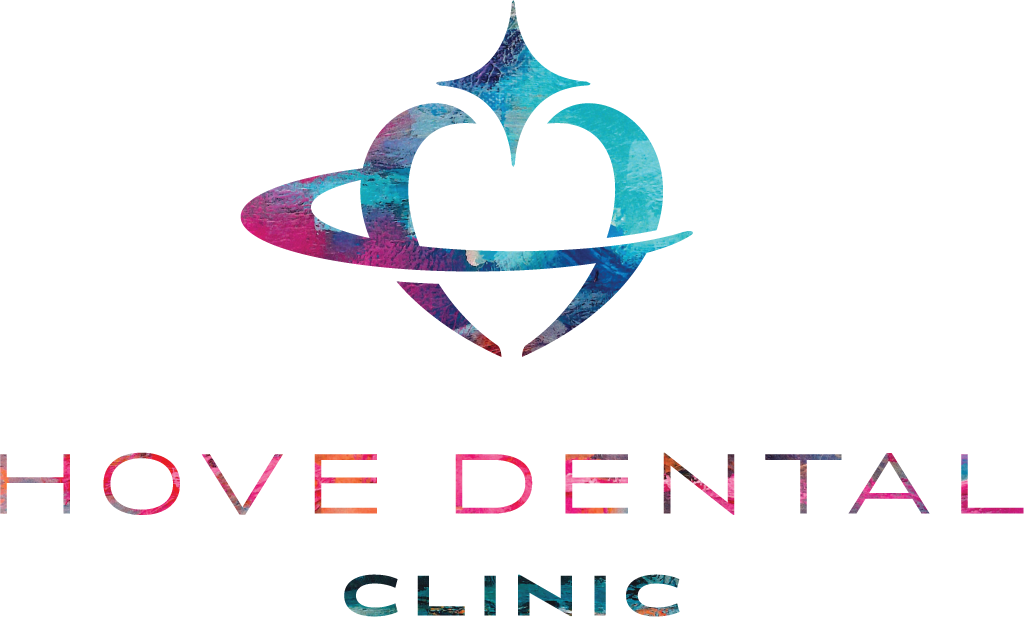Being scared of the dentist is very common, you’re not alone!

Having a fear of the dentist ranks among some of the most common phobias, but with the right patient care and understanding of treatments, we can help you overcome your dental phobia.
Being scared of the dentist will eventually become a burden on your oral health. Managing and finding coping mechanisms for your dental phobia is important because visiting the dentist is an essential part of maintaining your oral health. For example, failing to visit your dentist if you have a toothache may not carry immediate repercussions, but that toothache may be a symptom for something more severe further down the line.
Additionally, failing to visit your dentist when required will mean future treatment may become more complex and costly.
Our team at Hove Dental specialise in dealing with anxious and nervous patients. When you visit our clinic, simply address any worries or concerns to our staff and they will provide the support you need. Alternatively, if you are booked in with our team, simply send us an email detailing any questions or worries you have and we will make the appropriate preparations.
Below, you will find seven helpful tips to help you stop being scared of the dentist.
Why do people fear the dentist?

While every patient will have different reasons for fearing the dentist, they can often be categorised into the following:
- Fear of pain
Arguably the most common reason for fearing the dentist. This type of fear is usually the result of previously bad experience or based off others’ negative experiences. It’s important to remember that all treatments and procedures are now considerably less painful or pain-free.
- Fear of needles, injections and anaesthetic
Another common fear is the fear of injections and how anaesthesia is applied. Some patients feel their fear of needles is increased when inserted into their mouth. Additionally, some patients also worry that the anaesthesia won’t work or numb the targeted area. Remember, treatment will not begin until we are certain the anaesthesia has taken effect.
- Fear of side effects
Patients may also believe the side effects of the treatment will make them feel dizzy, faint and/or nausea. Know that any anaesthesia applied focuses on making your experience comfortable and relaxing and you may not even experience any side effects.
Claustrophobia and a lack of control
Claustrophobia is a common condition among many people and patients may feel unsettled by the lack of personal space in the dentist’s chair. It’s important to remember that you can always ask to have a break or ask for reassurance during treatment. Dentists are very much aware of this fear and will do everything to ensure your experience is comfortable.
How has the industry changed to become more accommodating for nervous patients?
The dental and orthodontic industry has seen drastic changes regarding patient experience across the last 20 years. A huge emphasis on patient experience has been applied, staff are trained to deal with nervous patients and clinics are designed to appear warm and welcoming. Ensuring patients feel comfortable and safe is high on dentists’ priorities.
All treatments have advanced and are designed to be as pain-free as possible

Thanks to the incredible advancements in technology and patient care, dental care is the best it’s ever been. The industry has placed a specific focus on improving facilities and technology to help patients feel more at ease during treatment.
Staff are now trained to deal with nervous and anxious patients, helping them feel relaxed and at ease during their treatment.
Our staff specialise in nervous patients, so if would like to know more about your treatment or if you require additional care during your visit, please let us know. We will do everything to make your short stay with us as comfortable as possible.
If you do suffer from dental phobia, you may want to consider:
-
Starting with a routine check up, and then progress to a scale and polish to ease you in
Patients who are really scared of the dentist may find it beneficial to book in for a routine checkup to ease them into the treatment process. A checkup does not involve any form of treatment, your dentist will simply examine your mouth and let you know if any further treatment is necessary.
If you’re feeling confident, you can opt for a routine scale and polish. This is a very simple and non-invasive treatment perfect for patients looking to build their confidence. This will also help ease you into other treatments further down the line (if you require them).
-
Book a few cognitive behaviour therapy sessions beforehand
CBT is one of the most successful forms of therapy that helps people challenge or alter negative behaviour patterns to help better deal with situations and scenarios that make them feel uncomfortable. Undergoing sessions in CBT can help patients approach treatments in a positive light, alleviating stress and making the process more comfortable.
Having bad teeth and being scared of the dentist is not a good combination, but CBT may be able to help overcome your fear, or simply make your experience with us more comfortable.
-
Ask about intravenous and sedation to help calm your nerves
Patients who suffer from severe dental phobia may find it beneficial to look into intravenous and sedation options. This option is strictly for patients who have tried and testing all other coping mechanisms without finding a viable solution.
Many clinics do offer sedatives to help patients relax during treatment. The treatments are explained in more detail below:
Intravenous sedation – this form of sedation is not like a general anaesthetic (where you’re put to sleep). Intravenous sedation, instead, calms and relaxes you, to the extent where you may not even remember your treatment.
Gas and air – gas and air has been used in the dentistry industry for decades and is still very popular. A combination of oxygen and nitrous oxide is used to calm the patients, some even report feeling ‘giggly’.
For more information on sedation options, please get in touch with our friendly staff.
A few important things to remember during your visit

Our team are here to help make your experience at Hove Dental as comfortable as possible. We also provide a fantastic service for children who are nervous about visiting us. Whether it’s their first time or they’re concerned due to a previously bad experience, our team are dedicated to helping children overcome their fear of the dentist and enjoy the short time they spend in our care.
Early treatment will likely save you money on complex procedures
Having rotten teeth and being scared of the dentist is not a good combination. To avoid any oral problems worsening, book in for a routine checkup to ensure nothing is out of the ordinary. No treatment will be required for this, and your dentist may identify a problem that would have otherwise been costly to rectify further down the line. Spotting these issues early will save you money and sometimes the need for complex treatment in the future.
For example, If you have a toothache but are scared of the dentist, we recommend arranging a checkup to ensure it’s nothing serious. Being scared of the dentist and having bad teeth is not ideal, but booking a checkup will allow your dentist to assess your oral health and arrange further treatment if necessary.
We’re here to help!

Dentists do not want to be feared! Our team at Hove Dental always ensure that your comfort and safety comes first, and although some people may fear the needles that help numb your mouth, try to remember these are here to soothe the treated area so you experience little to no pain.
All procedures are designed to be as pain-free as possible. If you do require a short break or you’d like further treatment to help numb any discomfort, please do let us know and will provide assistance.
Book your checkup today
If you’re scared of the dentist but need treatment, our team Hove Dental are here to help. Book in for a checkup and we will help you to overcome your fear by explaining our process and how our care can improve your oral hygiene and enhance your quality of life.

 Claustrophobia and a lack of control
Claustrophobia and a lack of control


















